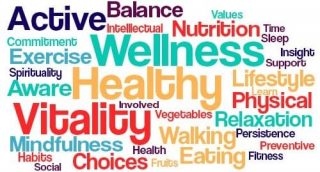Precision health could be enhanced by using Artificial Intelligence or AI with patient data. Ethical use of the data is critical to make sure that the data are used to benefit patient health ONLY. Examples of that would include early detection and management of diseases and support independent living of senior citizens among many other items. Certainly, AI has been dominated by the industry, and the voice of doctors running healthcare has not been seen or heard in the forefront. Other examples of AI, include robot-assisted surgery, virtual nursing assistant to avoid unnecessary hospitalization and help support decision-making made by professionals. But, the use of patient data should only be allowed with clear permission from the patients.
There are obviously many concerns that machines will never replace human experience even if new algorithms try to humanize machines especially in a profession that is 100% dependent on human interaction, empathy, compassion, and personalized care that can not be replaced with a machine.
AI may have a role in sending reminders to patients to help their compliance rate of medications intake, measure blood sugar levels, blood pressure levels, educate patients regarding diet, nutrition, and healthy lifestyle, and communicate with a healthcare provider who is a human being, not a machine.
Protection of patient data has to be a core issue in the so-called man-machine relationship. Patient data must be protected against discrimination, support health equities addressing cost-effectiveness, patent safety, and quality of healthcare delivered. For example, management of diabetes would incorporate issues of health equity as the machine learning model include social determinants of health that are well known to contribute to diabetes risk. Thus, a population-wide approach to risk assessment can be a tool to address health disparities which have gotten much worse after the COVID-19 pandemic as it brought both social and racial injustice to the forefront of healthcare.
The use of AI in medicine has to govern with accountability, transparency, fairness, proven benefit to patients without compromising the privacy and security of patient data. This has to be clearly stated, explained to patients with well-defined guidelines. Data input quality and integrity of the outcomes have to be examined, scrutinized, and verified by independent parties. Patients must have control of how their health data is used.
AI on the other hand could also be of beneficial use, for handling a high volume of phone calls related to vaccination without hiring additional staff or disrupting the usual business operations.
AI can be used to calculate out-of-pocket expenses for a certain test or a procedure, improve hospital collection using ( RPA) or Robotic Process Automation to get claims payment status to improve revenues cycle and cash flow critical for financial survival. On the clinical site, there is a recently published research using AI to help develop a score to predict Major Adverse Cardiac Events (MACE) using Nuclear Cardiac perfusion imaging. AI can potentially help to reduce waste ( estimated $1.2 Trillion every year)by enabling precision health. World Health Organization just released the first global report on AI with Ethics and Governance of AI in Health. The report includes protecting human autonomy, promote human well-being, safety, and public interest, ensure transparency, explainability, and intelligibility. Helping to foster responsibility and accessibility, ensure equity and inclusiveness, and promote responsive AI. The (WHO) report also cautions against overestimating the benefits of AI for health, unethical collection, and biases in algorithms when using health data. AI has additional risks regarding safety, cybersecurity, environment, and human rights. No problem using digital tools to promote all aspects of healthy living ( nutrition, exercise, mental wellness, sleep ..etc).
We have to always go back to basics as more than 90% of appropriate diagnoses and treatments can be successfully accomplished by doing an inexpensive by taking a thorough history and physical examination, simple lab tests such as basic blood work, a chest x-ray, and EKG ( Electrocardiogram) without the need for fancy expensive testing or AI algorithms with much higher personalized care leading to a higher rate of patient satisfaction, positive experience, and healing. Thus is seen more nowadays with Coronavirus Pandemic with a much higher rate of anxiety, stress-related diseases that need human-to-human interaction, not a human-to-machine interaction that can worsen rather than helping the desperate patients. After all, a human will never be the same as a machine, no matter the efforts to humanize the machines!
References
- Bartoletti, I.: Algorithms may outperform doctors, but they’re no healthcare panacea. The Guardian. https://www.theguardian.com/commentisfree/2018/jul/26/tech-healthcare-ethics-artifical-intelligence-doctors-patients. Accessed 26 Mar 2019
- Marks, M.: Artificial intelligence-based suicide prevention. Yale J. Health Policy Ethics. https://ssrn.com/abstract=3324874. Accessed 26 Mar 2019
- Calo, R.: Robots and privacy. In: Lin, P., Beckey, G., Abney, K. (eds.) Robot Ethics: The Ethical and Social Implications of Robotics, pp. 187–202. MIT Press, Cambridge (2012)
- Bartoletti, I.: Algorithms may outperform doctors, but they’re no healthcare panacea. The Guardian. https://www.theguardian.com/commentisfree/2018/jul/26/tech-healthcare-ethics-artifical-intelligence-doctors-patients. Accessed 26 Mar 2019
- Marks, M.: Artificial intelligence-based suicide prevention. Yale J. Health Policy Ethics. https://ssrn.com/abstract=3324874. Accessed 26 Mar 2019.
- Calo, R.: Robots and privacy. In: Lin, P., Beckey, G., Abney, K. (eds.) Robot Ethics: The Ethical and Social Implications of Robotics, pp. 187–202. MIT Press, Cambridge (2012)
- “WHO Issues First Global Report on Artificial Intelligence (AI) in Health and Six Guiding Principles for Its Design and Use.” World Health Organization, World Health Organization, www.who.int/news/item/28-06-2021-who-issues-first-global-report-on-ai-in-health-and-six-guiding-principles-for-its-design-and-use.
- Dr. Adel Eldin, MD, FACC, FACP, MBA, GGA
- Board Certified Cardiologist
- Founder, CEO
- Affordable Quality Healthcare Program
- www.prontocare.co
- Founder, CEO
- www.floridamedicaltourism.com
- Wesley Chapel, Florida
- Tel: 877-DR ELDIN










